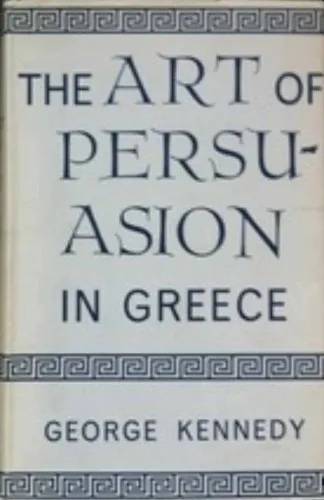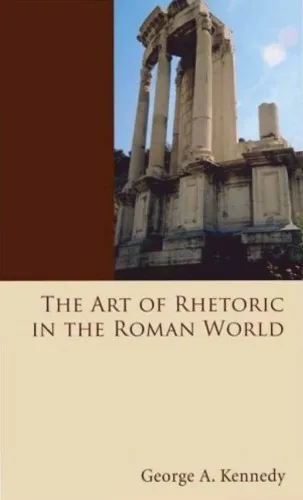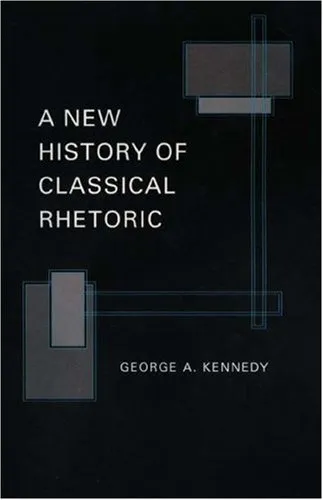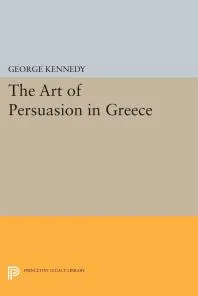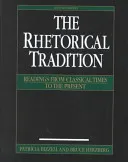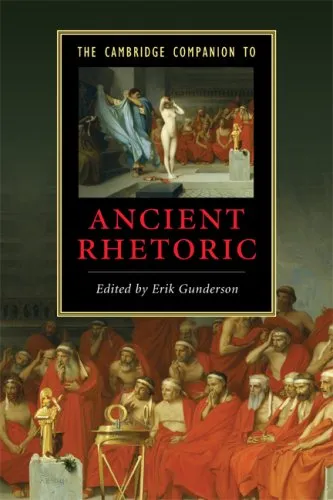The Art of Persuasion in Greece (A History of Rhetoric, )
4.4
بر اساس نظر کاربران

شما میتونید سوالاتتون در باره کتاب رو از هوش مصنوعیش بعد از ورود بپرسید
هر دانلود یا پرسش از هوش مصنوعی 2 امتیاز لازم دارد، برای بدست آوردن امتیاز رایگان، به صفحه ی راهنمای امتیازات سر بزنید و یک سری کار ارزشمند انجام بدینکتاب های مرتبط:
خلاصه تحلیلی کتاب
کتاب The Art of Persuasion in Greece (A History of Rhetoric, vol. 1) اثری پژوهشی و بنیادین در مطالعات بلاغت کلاسیک است که به تحلیل دقیق ریشهها و سیر تحول فن خطابه در یونان باستان میپردازد. نویسنده با رویکردی تحلیلی، روایت تاریخی و نقد زبانی را در هم میآمیزد و از نخستین اشکال اقناع شفاهی در میدانهای عمومی گرفته تا نظاممند شدن نظریههای خطابه در آثار فیلسوفان، مسیر تکامل این هنر را روشن میسازد.
در این کتاب، ساختارهای فکری و اجتماعی که به رشد فن خطابه انجامید بررسی میشود. از سنتهای شفاهی و اسطورهای آغاز میگردد و سپس به دورههای کلاسیک و ظهور اندیشمندانی چون سقراط، افلاطون و ارسطو میرسد؛ هرچند تأکید اصلی بر تحلیل نقادانه دیدگاهها و کاربرد عملی این نظریهها در بافت سیاسی و قضایی آن زمان است.
یکی از نقاط قوت این اثر، تلفیق منابع تاریخی با تحلیل مفهومی و نشان دادن ارتباط میان زمینههای فرهنگی و بروز شیوههای اقناع است. نویسنده با پرهیز از نقل مکانیکی رویدادها، رویکردی پویا و معاصر نسبت به تاریخ ارائه میدهد که برای خوانندگان جدی و پژوهشگران جذاب و آموزنده است.
نکات کلیدی و کاربردی
این کتاب نه تنها یک روایت تاریخی از بلاغت یونانی ارائه میدهد، بلکه چارچوبی نظری برای درک بهتر مکانیزمهای اقناع فراهم میکند که میتواند در مطالعات میانرشتهای، آموزش خطابه، و حتی تحلیل ارتباطات سیاسی معاصر بهکار رود.
یکی از نکات مهم این اثر، بازشناسی پیوند میان بلاغت و ساختارهای قدرت است؛ نشان میدهد که چگونه خطابه نه فقط ابزاری هنری، بلکه سازوکاری اجتماعی ـ سیاسی محسوب میشده است که بر فرآیندهای تصمیمگیری و قانونگذاری اثر میگذاشته است.
خوانندگان جدی با مطالعه این کتاب درمییابند که بسیاری از نظریههای متأخر در باب اقناع، ریشه در مفاهیم باستانی دارند و فهم این ریشهها میتواند دقت تحلیل ارتباطات را بالا ببرد.
نویسنده با مقایسه روشهای خطابه در یونان باستان با اصول مدرن communication، امکان بهرهگیری از میراث یونانی را در فضای معاصر نشان میدهد. این بخش برای مربیان، سخنرانان و تحلیلگران رسانه بسیار ارزشمند است.
نقلقولهای ماندگار
برخی جملات و دیدگاههای مطرحشده در این کتاب، با وجود گذر قرنها، همچنان تازگی و عمق خود را حفظ کردهاند و برای پژوهشگران الهامبخشاند.
این نقلقولها نه تنها نگاه به تاریخ را غنیتر میکنند، بلکه اهمیت اقناع و بلاغت را در بستر زندگی اجتماعی و سیاسی نشان میدهند.
«هنر خطابه، هنر شکلدادن به اندیشههاست پیش از آنکه به کلمات بدل شوند.» نامشخص
«برای شناخت قدرت، باید زبان را شناخت؛ و برای شناخت زبان، باید خطابه را فهمید.» نامشخص
«اقناع در یونان باستان نه یک مهارت فردی، بلکه ستون جامعه مدنی بود.» نامشخص
چرا این کتاب اهمیت دارد
اهمیت کتاب The Art of Persuasion in Greece (A History of Rhetoric, vol. 1) در این است که بهصورت مستند و نظاممند، مسیر شکلگیری یکی از مهمترین ابزارهای فرهنگی و سیاسی را به تصویر میکشد. این کتاب پلی است میان گذشته و حال، بهگونهای که خواننده میتواند مفاهیم کلاسیک را با مسائل معاصر پیوند دهد.
از آنجا که بسیاری از منابع دستاول این حوزه به زبانهای باستانی نوشته شدهاند
Analytical Summary
In The Art of Persuasion in Greece (A History of Rhetoric, vol. 1), the historical and intellectual roots of rhetoric are examined through the lens of ancient Greek culture, politics, and philosophy. This work provides readers with a meticulously researched narrative that traces how persuasive techniques emerged, evolved, and influenced the foundational structures of Western thought.
The book situates persuasive speech within the broader framework of Greek civic life, highlighting the interplay between rhetoric, democratic institutions, and philosophical discourse. From the early Sophists to the mature rhetorical theories of Aristotle, the narrative follows a chronological progression that sheds light on both the practice and theory of persuasion.
Rather than offering a superficial overview, this volume engages deeply with primary sources, contextual interpretations, and the intellectual climate of the period. Readers will find sustained attention to original Greek texts (in translation), the mechanisms of oratorical training, and the tensions between sophistic relativism and philosophical absolutism.
Key Takeaways
This volume delivers a scholarly yet accessible pathway into understanding how the Greeks conceived, debated, and codified the art of persuasion. The takeaways serve both academic enrichment and practical insights for professional communicators.
It clarifies the distinctions between different schools of rhetoric, particularly between Sophistic practices focused on winning arguments and Platonic/Aristotelian approaches that sought truth or ethical ends through speech.
The reader gains a clear understanding of how rhetoric was inseparable from the democratic experiment in Athens, shaping not only legal and political outcomes but also philosophical inquiry.
Scholarly rigor is balanced with real-world applicability, making this an important text for both historians of ideas and contemporary practitioners of public speaking, persuasion, and communication strategy.
Memorable Quotes
Persuasion is achieved by the speaker's personal character when the speech is so spoken as to make us think him credible. Aristotle
Speech is the mirror of the soul. Unknown
Rhetoric is the counterpart of dialectic. Aristotle
Why This Book Matters
The importance of The Art of Persuasion in Greece (A History of Rhetoric, vol. 1) lies in its ability to bridge ancient theory and modern relevance. For academics, it is a meticulously documented resource backed by careful interpretation of primary sources. For professionals, it offers insights into persuasive communication that transcend time and culture.
Understanding the principles that underpinned Greek rhetorical practice helps illuminate modern debates about political discourse, legal argumentation, and the ethics of communication. This makes the work not just a historical study, but also a relevant companion for critical thinkers, educators, and public speakers.
Because it avoids the pitfalls of oversimplification, the book stands as a credible and enduring reference. Its scholarly contribution endures regardless of shifting trends in rhetorical theory, cementing its place in the canon of communication studies.
Publication year: Information unavailable due to no reliable public source confirming the original release date.
Inspiring Conclusion
The Art of Persuasion in Greece (A History of Rhetoric, vol. 1) remains one of the most authoritative examinations of how eloquence, logic, and ethical consideration were fused into one art form in classical antiquity. It invites readers to not only appreciate the historical trajectory of rhetoric but to actively engage with its principles in their own speaking, writing, and civic participation.
By exploring the intersections of philosophy, politics, and language, this work transcends the boundaries of traditional classical studies, speaking to anyone who values the power of ideas well expressed. Whether you are a scholar, a lawyer, a lecturer, or a leader in any field, the techniques and insights drawn from Greek rhetorical tradition can elevate your communicative impact.
The next step is clear: read deeply, reflect critically, and share your understanding of rhetorical heritage with others. In doing so, you will continue the living tradition of the art of persuasion, ensuring that the lessons distilled in this remarkable volume remain vital for generations to come.
دانلود رایگان مستقیم
شما میتونید سوالاتتون در باره کتاب رو از هوش مصنوعیش بعد از ورود بپرسید
دسترسی به کتابها از طریق پلتفرمهای قانونی و کتابخانههای عمومی نه تنها از حقوق نویسندگان و ناشران حمایت میکند، بلکه به پایداری فرهنگ کتابخوانی نیز کمک میرساند. پیش از دانلود، لحظهای به بررسی این گزینهها فکر کنید.
این کتاب رو در پلتفرم های دیگه ببینید
WorldCat به شما کمک میکنه تا کتاب ها رو در کتابخانه های سراسر دنیا پیدا کنید
امتیازها، نظرات تخصصی و صحبت ها درباره کتاب را در Goodreads ببینید
کتابهای کمیاب یا دست دوم را در AbeBooks پیدا کنید و بخرید
1204
بازدید4.4
امتیاز0
نظر98%
رضایتنظرات:
4.4
بر اساس 0 نظر کاربران
Questions & Answers
Ask questions about this book or help others by answering
No questions yet. Be the first to ask!
